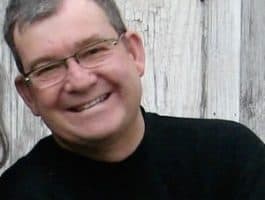
Aiding the Orphan:Transforming a Culture
What do a small-town Maryland couple, a farm in Zambia, and 200 orphan children have in common? Lots, if you’re Benedict Schwartz or his wife, Kathleen. Founders of All Kids Can Learn International, the Schwartzes explain how they are setting up children’s villages in Africa to care for the physical and spiritual needs of orphans, and how churches and businesses can help by sponsoring a village, too.
Show Notes
About the Host
About the Guest
-
What do a small-town Maryland couple, a farm in Zambia, and 200 orphan children have in common? Lots, if you’re Benedict Schwartz or his wife, Kathleen. Founders of All Kids Can Learn International, the Schwartzes explain how they are setting up children’s villages in Africa to care for the physical and spiritual needs of orphans, and how churches and businesses can help by sponsoring a village, too.
-
Dave and Ann Wilson
Dave and Ann Wilson are hosts of FamilyLife Today®, FamilyLife’s nationally-syndicated radio program. Dave and Ann have been married for more than 38 years and have spent the last 33 teaching and mentoring couples and parents across the country. They have been featured speakers at FamilyLife’s Weekend to Remember® marriage getaway since 1993 and have also hosted their own marriage conferences across the country. Cofounders of Kensington Church—a national, multicampus church that hosts more than 14,000 visitors every weekend—the Wilsons are the creative force behind DVD teaching series Rock Your Marriage and The Survival Guide To Parenting, as well as authors of the recently released book Vertical Marriage (Zondervan, 2019). Dave is a graduate of the International School of Theology, where he received a Master of Divinity degree. A Ball State University Hall of Fame quarterback, Dave served the Detroit Lions as chaplain for 33 years. Ann attended the University of Kentucky. She has been active alongside Dave in ministry as a speaker, writer, small-group leader, and mentor to countless wives of professional athletes. The Wilsons live in the Detroit area. They have three grown sons, CJ, Austin, and Cody, three daughters-in-law, and a growing number of grandchildren.
-

Paul Pennington
Paul is the Executive Director of Hope for Orphans and his wife, Robin, is Director of Family Relations. Paul and Robin co-founded Hope for Orphans in 2002, before merging with FamilyLife in 2003. Paul is the co-author of the book "Launching An Orphans Ministry in Your Church" and a co-host of the "If You Were Mine DVD Adoption Workshop" both published by FamilyLife Publishing. Paul also led the development of the "Your Church and the Orphan Seminar" that helps churches launch an orphan minis...more
What do a small-town Maryland couple, a farm in Zambia, and 200 orphan children have in common?
Aiding the Orphan:Transforming a Culture
Bob: In the heart of South Central Africa, in Zambia, Benedict Schwartz is seeing how when you step in and help an orphan, you watch things change not only for the orphan but for the village, for the city, for a whole country.
Benedict: We have stereotypes that do not fully appreciate the incredible ingenuity and resourcefulness of these young people. They have stayed alive under circumstances that most of us would have cracked and crumbled under as they, as young children, were taking care of their dying parents. And they have tremendous resilience, resourcefulness, and it is wonderful to see our resources come to bear to help them find the roles that God has for them in this creation.
Bob: And welcome to FamilyLife Today, thanks for joining us. We are spending some time focusing this week, Dennis, on the whole subject of orphan care, adoption, the needs of orphans all around the world, and, you know, I think when most people think about orphan care or about the needs of orphans, we think about the basics – about food, about shelter, about nourishment, medicine, the things that sustain life.
Dennis: Right.
Bob: But there is a movement afoot to go the next step – not only provide the necessities but also to raise up a generation of orphans who can transform a culture.
Dennis: And become businessmen and women and provide for themselves and not be dependent upon a group of people to provide for them. And we've got some pioneers with us who are straight from the front lines, from Lusaka, Zambia, Benedict and Kathleen Schwartz join us. Benedict, Kathleen, welcome back.
Kathleen: Thank you so much.
Benedict: It's great to be back.
Dennis: You head up an organization that is called "All Kids Can Learn," and it really represents what Bob is talking about. You believe, as the leaders in an orphan care ministry in Namibia and in Zambia, that children today not only – well, some of them need to be adopted, but many of them, as orphans, need to be cared for around the basics, but they need to be trained so that they can learn. That's why you established this organization.
Benedict: Correct. And as a Christian businessperson, the Lord has sent us – as a 62-year-old Christian businessperson …
Bob: So a young guy.
Dennis: You're a pup.
Benedict: Twenty-seven on the inside.
Dennis: I just turned 60, and you're just a mere pup.
Bob: That's right.
Benedict: So, Lord willing, many more years to go. But the Lord really directed us to use the skill sets that He has given us in business. I had a computer software company for over 20 years, and the skills that He has built into us and not just us but into baby boomers throughout our culture, are remarkable. We have some of the best planning skills, the best technology skills, we know about business, and there is a need throughout this creation for those kinds of skills to come alongside of others in other cultures who need to be raised up and trained. So very specifically, we are carrying those skills to the realm of orphan care.
Bob: Kathleen, I had an opportunity – this was maybe five years ago, I was in Beijing, and I traveled outside of the city to an orphan's ministry that had been established in that area, and I saw a number of these kids, some of them with medical needs, but they were being well cared for. The house was a bright, happy home that they were in, and I was encouraged to see how these kids, who had nothing, were getting cared for, and they were getting an education.
And I think the hope of that home was that somehow these children might be placed for adoption in the United States or somewhere else around the world. It seemed like that was the goal of this children's home. Are most children's homes looking to place kids and thinking that's the hope and if we don't get them placed, we don't have anything for them?
Kathleen: I think, more and more, people who are in orphan care realize that the number of children that are going to be adopted is very small compared to the huge need. And in Zambia, the increasing problem is that unemployment is 60 percent to 80 percent so that if you take care of children, and you give them an education, it doesn't guarantee that when they are old enough that they will even have a job to be able to support their family.
So if in the context of the orphan care, you can also establish businesses that the children are being trained in, that then they become part of as they mature into adulthood, then you have helped them make that transition into sustaining themselves and their families.
Dennis: Benedict, you are actually building orphan villages, actual homes, that are made of brick, and the very concept that Kathleen was talking about here, you actually birthed as you had to make the bricks to build your buildings, and, in the process, you started a little industry on the spot.
Benedict: Well, that's right. Our original intention was to build cottages for three to six- or three to seven-year-olds because there are 1.1 million orphans just in Zambia out of an 11 million population. So the need is huge.
As we hired some young men from a local mud hut thatched-roof village to make the blocks, we began to realize God loves these guys just as much as He loves the little ones, and, really, there was nobody ministering to these young adults – 18 to 20-something-year-olds. And yet they need the Gospel, they need skills.
So the way the Lord seemed to lead us was to develop businesses – these young men in building our cottages made over 60,000 construction blocks, and people began to come to us and say, "Well, gee, how much are your blocks?" So suddenly we found ourselves in the block-making business.
The thought came because Zambia has such wonderful weather and can grow crops year 'round if you have water. The thought came, "We should start a conservation farming training program." And so we went to the Zambia National Farmers' Union and said, "Would you give us an instructor? We want to begin training young people, young adults, in doing small-skill commercial farming."
They said, "Yes, we would." I rejoiced. "Lord, that's wonderful." They said, "One day a week we'll give you an instructor," and I said, "Ah, Lord, one day a week? We need somebody five days a week. Where are we going to find anyone?"
One day – there's an organization, Africare, who helps us out over there, and Africare was giving us a used tractor and Pastor Emanuel Lasumpa [sp], who helps administer things over there, had to go to pick up this tractor in another part of Zambia. So I took him to the bus station in Lusaka – this is a Third World bus station, thousands of people, cars, chaos going on – I pulled into a parking spot while he went in to get the ticket.
And a young man walks up to me and says, "Excuse me, sir." I said, "Yes?" He said, "Do you have anything to do with agriculture?" Now, in 61 years nobody had ever asked me that question. I mean, I'm a computer software guy.
Dennis: All these people milling around a bus depot, right?
Benedict: Absolutely.
Dennis: And he just comes up to you out of the clear blue?
Benedict: And says, "Excuse me, sir, do you have anything to do with agriculture?" And I immediately thought, in my mind, "Okay, Lord, this may get interesting." I said, "Why do you ask?" And he said, "Well, I just graduated from a three-year program in horticulture and export agriculture, and I'm looking for a job."
So I decided to put a couple of barriers in front of him, so I said, "Well, here is my phone number, get in touch." And he did, and then I said to him, "Well, could you please put together a curriculum vitae and take it to Africare, which he did, and it was superb. Then I had the guys from the Zambia National Farmers' Union who know about farming, because I didn't know beans about farming …
Dennis: You didn't know beans about farming?
Benedict: No pun intended – except that you have use legumes and crop rotation, I know that now. Anyway, so – they interviewed him and said, "This guy is terrific." And so Joseph Kangala [sp] became the instructor – 25 years old, and loves Jesus. Amazing.
Dennis: I've got to ask you – did you ever ask him why in the world he came up to you at the bus depot?
Benedict: We have, and he said he doesn't know, and he had never asked anybody else. So you talk about divine appointments, and Joseph is just such a gift. And we have seen these same kinds of miracles as God has put together our team.
We have all African senior staff over there to operate, because we're trying to work on self-sustainability, meaning that to generate the funds, to be able to provide for the training, provide for the orphan care, and because we've been doing farming, we started a farm market. We're on the busiest road in Zambia, the Great North Road. We have four-tenths of a mile of road frontage on our 230 acres. We started a farm market, and we sold over $5,000 worth of produce in the month of October of 2007. And that just was amazing to us, in a country where the average income is $1 a day.
Bob: Is anybody suspicious of what you're trying to do? They wonder about your motives? They think you're coming in here and trying to get these orphan kids working for you, you're going to turn this into some U.S. commercial enterprise?
Benedict: Not at all. We are right next to an indigenous village of over 300 people. We are very much partnering with that village in every aspect of life. We're the largest employer for that village. We have close to 60 people on the payroll, most of them young adults. And just incredibly exciting things happening – the young adults came up with the idea of why don't we get a truck and sell wholesale to some of the other little thatched-roof markets along the road? So we did that. And now, twice a week, they go out with 200 cabbages, 100 trays of eggs, chickens, and sell along the road.
Kathleen: And one of the things that is important here is that many of those young adults are themselves orphans – that they were orphaned even at a younger age, so they had no parents who raised them with skills to be able to get jobs. And many of them are also taking care of cousins or sisters or brothers or other orphans in their community. So by ministering and providing opportunities, jobs, businesses, for these young adults, it's impacting orphans who may not be living in our cottages, but who are, in fact, reaping the benefits of what God is doing through this approach.
Benedict: Yes, 18- to 30-year-old orphans. What we see is a tremendous need for North American business people to get involved, and the Lord linked us with a Christian business organization, Partners Worldwide, which is in Grand Rapids, Michigan, and they, for instance, have a farming team in the United States that links with us to help us with expertise and irrigation.
They also have people who help us with marketing. Now, a venture that will be beginning in January will be a poultry operation doing 5,000 birds at a time, broilers, teaching the young adults. We've been given 50 acres nearby by a Christian head man, and on that property …
Dennis: A Christian what?
Benedict: Like a Christian village chief.
Dennis: Really?
Benedict: A village chief who happens to be a Christian.
Bob: They don't call him a head man for any other reason, do they?
Benedict: No, no, no, no.
Bob: Okay, just making sure.
Benedict: That is just a term that carried over from those days.
Bob: Okay.
Dennis: But you've got 50 acres, and you're using it to raise chickens?
Benedict: We have 50 acres, and what we'll be doing is we've received funding to build a duplicate chicken operation where they will do 5,000 chickens at a batch. Our young people have gone through our conservation farming. Our first class has gone through year one, year two, they're learning business skills. They will be operating the chicken, the poultry operation on our property, and then, year three, will move over to their own property, where they will be running it there.
Dennis: Benedict, you told me in a conversation you and I had some time back, you said one of the things that really excited you was that these young men, 18 to 30, not only helping to grow the produce and the chickens, but also you were training them to use an Excel spreadsheet?
Benedict: Yes, in our market, every one of the students, the Conservation Farming students, enters the sales, the daily sales, in an Excel spreadsheet. They had never touched a computer before, and then we teach them how to analyze the information, how to evaluate what is selling the best? Is it potatoes? Is it oranges? Is it chickens? And then to discuss issues of profitability.
Bob: Let me ask you about the country in which you are doing all of this. It's a country that's been decimated by AIDS, more than 40 percent of the adults between 18 and 40 or 18 and 50, are HIV-positive, and there has been widespread sexual promiscuity that goes along with the spread of AIDS. What is the spiritual climate and how is that changing as a result of what you are doing in these villages?
Benedict: Let me say a couple of things about Zambia. Zambia is a wonderful, wonderful country. The people are the friendliest I have ever met, and it goes along with the wonderful weather. It's some of the best weather in the world, Kathleen and I think. The country declared itself a Christian nation in 1997. Now, we know nations aren't Christian but people are Christians.
But what that means is you can talk about Jesus in the schools. They've had independence there for 42 years, democracy, peaceful transitions of government. So you have a very fertile ground for the Gospel. The problem has been that the Gospel has not gone deeply into the lives, especially of the young people, and we are trying to address that through a couple of ways.
We have devotions two times a week with Christian education for the young adults, and it's wonderful to be in a room with 50 young men and women who are singing praises to Jesus. And then local pastors come in to instruct and to bring them the Word of God. In April we were thrilled when seven of the students – and we're now talking about in their 20s – said they wanted to accept Jesus as their Lord and Savior. And it was a wonderful, wonderful moment.
So that we also have the continuity to be able to help them grow in the faith. We've started a women's group for the young women in our training programs. Kathleen has started a woman's group and Bible study that meets weekly with some of the local village women where we're trying to not only bring them the capacity to earn a living and sustain themselves but especially trying to bring them eternal riches through Jesus.
Kathleen: What we began was a group that one of the young women said, "We need to call this group the Chimwemwe [sp] ladies." That means the "happiness ladies." And most of them are young women, and they bring their young children with them, and we begin with the Bible study, and when we first began, we began with the story of Ruth, and then we are learning different crafts that we will be able to make articles that we will sell, then, at the market. And as people come from the States, right there on our market and on our land, people will be able to get those things that you buy when you go visit other countries and take back. But it will be helping the local village women in the area.
Benedict: Yeah, and it's so critical because they live in one-room mud huts, thatched roofs, and they need that extra income. It can make the difference between whether their children go to school or don't go to school because in many sub-Saharan African countries, there are still school fees that have to be paid, uniforms that have to be bought, shoes that have to be bought, books that have to be bought, pens and pencils and pads that have to be bought, and that's one of the reasons why many orphans are not able to go to school.
One of the things that Kathleen is working on is a school for the property, and that school will ultimately be available for other young people in the area.
Bob: You know, you hear about this, Dennis, and it really changes somebody's mindset. It changes your picture of what orphan care can look like and is looking like all around the world.
Dennis: It's really discipleship. I've talked to Benedict about what he and Kathleen are doing, and they are taking these young men who make bricks and, as they make bricks, they are also discipling them to be followers of Jesus Christ.
Bob: Now, you don't do the more bricks less straw thing, because that's kind of a biblical – no – never mind, we wouldn't go there.
Dennis: But, practically, I'm thinking there is likely a listener right now saying, "Okay, you've sold me. I'm in. What do I need to do?" Well, I've got three action points for you. Number one, start an orphan care, foster care, adoption ministry in your local church. Just begin to get people who have a passion for this together in your local church and then begin to step out and engage ministries like Kathleen and Benedict give leadership to and see how you might help them. You don't have to go to Africa to do it. There's plenty of ministry around our state foster care system. There are literally hundreds of thousands of children who need families and over 100,000 who could be adopted right here in America.
Bob: We've got a link on our website to Kathleen and Benedict's website so you can get more information about what they're doing, but we also have links to other organizations like you're talking about – other ways that churches can get involved in caring for the needs of orphans, children in foster care, whether it's domestically or around the world.
Dennis: And we have a book that is designed to aid the formation of this orphan care, foster care, adoption ministry in a local church. It's called "Launching an Orphan's Ministry in Your Church," and it's very simple. It is a lot of hard work, but as Kathleen and Benedict have shared, it really does make a difference.
And I just know, Benedict, Kathleen, that your organization – All Kids Can Learn International has a great heart and a vision for building more of these villages of hope. And you actually have a plan where, for $20,000 to $25,000 a church or an organization or a business or a family can build a cottage that's a part of a village, and they have a practical way you can do that, and then after it's built, there is a way for churches or individuals to sustain one of those cottages for about $500 a month and, frankly, I'd encourage our listeners to find out more about this ministry and perhaps considering to come alongside them.
Bob: Yes, and in the booklet that we've put together on "Ten Ways Every Christian Can Care for Orphans and for Waiting Children," we list things like this that individuals can do, that churches can do – ways that all of us can be involved in trying to address the needs of orphans all around the world, and that's one of the booklets we have available on our website at FamilyLife.com.
In fact, let me encourage you– go to FamilyLife.com today. On the right side of the home page where you see a box that says "Today's Broadcast," click where it says "Learn More." That will take you to an area of the site where there is information on resources we have, like, "How To Launch an Orphan's Ministry in Your Church," we have a new Homebuilders study that we've put together for couples who are considering adoption, to help them think through the issues related to adoption so if there were a number of couples who wanted to think and pray about this, they could go through the study together.
And then our team has put together an adoption seminar on DVD that a church can host, again, so families in your church or in your community can learn more about the process of adoption. And adoption is just one of the ways that we can be a part of addressing the orphan care crisis. There are, as I said, a variety of ways for individuals or churches to get involved. More information about that on our website at FamilyLife.com.
Again, when you get to the home page, on the right side of the screen, click where it says "Today's Broadcast," or if it's easier, just call us at 1-800-FLTODAY, 1-800-358-6329. When you contact us, someone on our team can let you know what resources are available and can make arrangements to have the resources you need to send to you.
Last week I mentioned that Barbara Rainey has written a new book just in time for Christmas that is called "When Christmas Came." It's a book that meditates on John 3:16, and helps us reflect on the gift that God has given at Christmastime to all men and women – the gift of His Son, Jesus.
This is a beautiful book, and it's a book that we want to make available this week to any of our listeners who will help support the ministry of FamilyLife Today with a donation of any amount. We are listener-supported, so your donations are critical for this ministry to continue on this station and on other stations all across the country. We appreciate those of you who, from time to time, will make a donation to FamilyLife Today, and we hope that you'll request a copy of Barbara's new book if you make a donation this week.
You can donate online at FamilyLife.com, and if you are donating online, you'll want to write the word "Christmas" in the keycode box so we'll know to send you a copy of Barbara's book, or call 1-800-FLTODAY, 1-800-358-6329, make a donation over the phone and just request a copy of Barbara's book, "When Christmas Came." Again, we're happy to send it out to you, and we do appreciate your support of this ministry. We appreciate your partnership with us. Dennis?
Dennis: It has really been exciting to sit down with you, Kathleen and Benedict Schwartz, to hear about your passion for orphans in Zambia. I just want to thank you for your faith, your obedience, your courage. There is a great statement that says "Courage begets courage." I have a feeling that you all have passed on a lot of courage to many, many listeners today to face some challenges perhaps that they are facing or maybe step into this great movement of God around the orphan, and I just want to thank you for being on our broadcast.
Kathleen: Thank you for having us.
Benedict: Thank you.
Bob: FamilyLife Today is a production of FamilyLife of Little Rock, Arkansas – help for today; hope for tomorrow.
________________________________________________________________
We are so happy to provide these transcripts for you. However, there is a cost to transcribe, create, and produce them for our website. If you've benefited from the broadcast transcripts, would you consider donating today to help defray the costs?
Copyright © FamilyLife. All rights reserved.
www.FamilyLife.com





